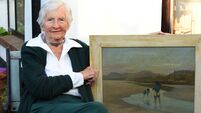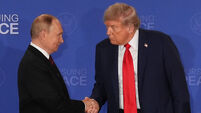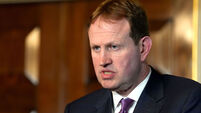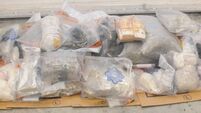Mick Clifford: 50 years after his death, what is Éamon de Valera's political legacy?
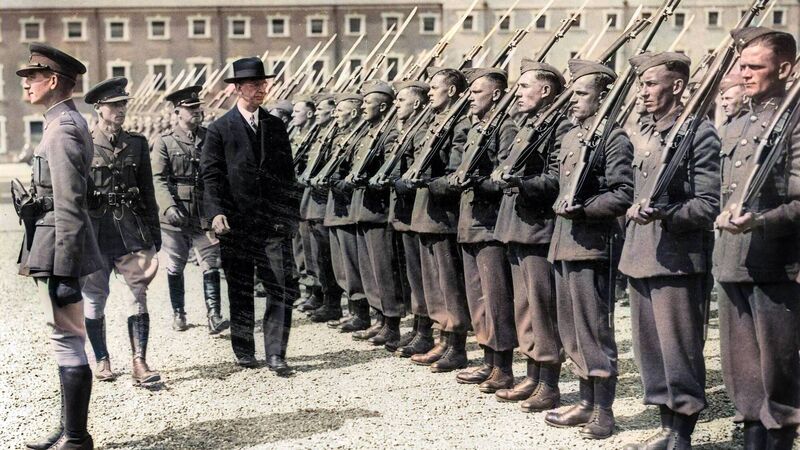
A colourised photo of then taoiseach Éamon de Valera inspecting a guard of honour in August 1940 at Collins Barracks, Cork. Picture: Irish Examiner Archive
Some had wondered whether he was beyond mortality, but the bell tolled for Éamon de Valera on August 29, 1975.
He was 92 when he died in Linden House nursing home in Blackrock, Co Dublin. His wife Sinéad, predeceased him by eight months.




